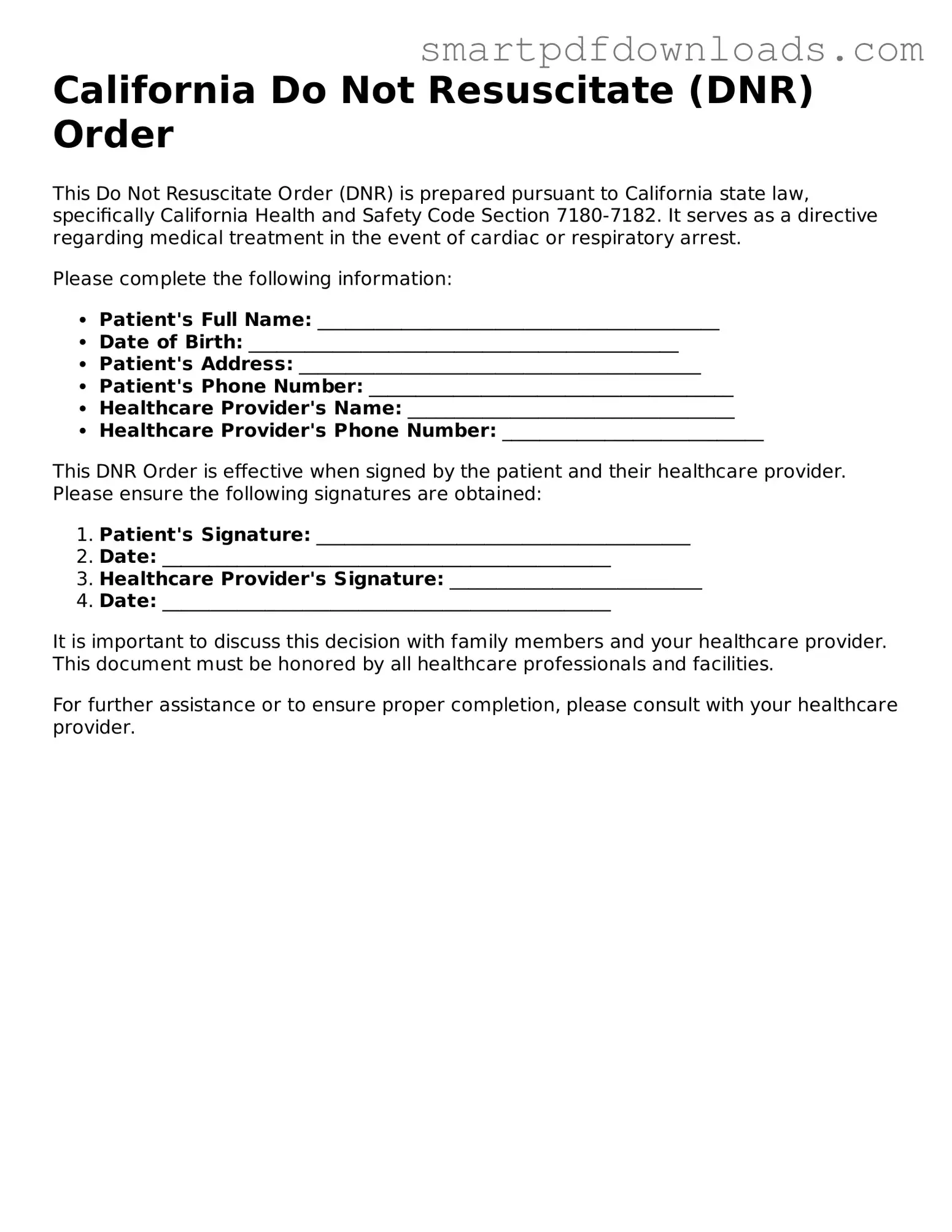Legal Do Not Resuscitate Order Form for the State of California
A California Do Not Resuscitate Order (DNR) form is a legal document that allows individuals to express their wishes regarding resuscitation efforts in the event of a medical emergency. By completing this form, a person can indicate that they do not wish to receive cardiopulmonary resuscitation (CPR) or other life-saving measures. Understanding this form is essential for ensuring that medical decisions align with personal values and preferences.
Edit Do Not Resuscitate Order Online

Legal Do Not Resuscitate Order Form for the State of California
Edit Do Not Resuscitate Order Online

Edit Do Not Resuscitate Order Online
or
⇓ PDF File
Finish the form and move on
Edit Do Not Resuscitate Order online fast, without printing.